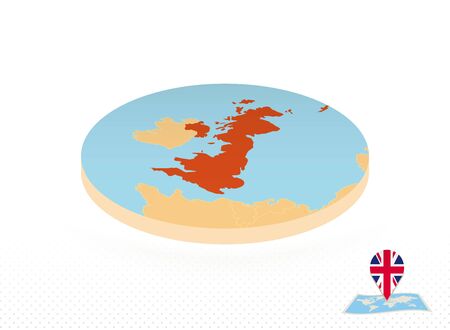Introduction: Britain’s Evolving Coffee Culture
Once a nation defined by its love for a proper cup of tea, the UK has witnessed an undeniable transformation in its caffeine habits over the past two decades. Today, artisan coffee shops dot every high street from London to Leeds, and a morning flat white is just as quintessential as a builder’s brew. This evolving coffee scene isn’t just about taste; it’s about lifestyle, community, and even personal identity. As British consumers grow ever more discerning—seeking single-origin beans, expert baristas, and ethically sourced blends—the economics of our daily caffeine fix have shifted dramatically. In this new landscape, monthly coffee subscriptions promise convenience, variety, and potential savings. But are these schemes truly worth it for the average British coffee drinker? Before we weigh up the pounds and pence, let’s explore how Britain’s burgeoning coffee culture has set the stage for this caffeinated debate.
Counting the Cost: Traditional Coffee Buying vs. Subscriptions
For the discerning British coffee drinker, cost is more than just the price of a flat white—its about the experience, value, and daily ritual. With monthly coffee subscriptions gaining traction from high street giants like Pret A Manger to independent roasters offering curated home deliveries, its worth asking: does subscribing truly save you pounds, or is it just clever marketing?
The Pay-As-You-Go Café Experience
Traditionally, popping into your local café on the way to work or during an afternoon stroll is as much a part of British culture as tea at four oclock. The average price for a takeaway coffee in London hovers between £2.50 and £3.50, depending on whether youre after a simple Americano or something more indulgent like an oat milk cortado. For the commuter grabbing one coffee each weekday, thats a weekly outlay of around £12.50–£17.50—and that doesnt even account for those cheeky weekend treats.
Monthly Subscription Services: Breaking Down the Numbers
Coffee subscriptions typically offer unlimited drinks for a fixed monthly fee or a set number of coffees per month delivered to your door. For example, Pret’s well-known subscription costs £30 a month for up to five barista-made drinks per day. Meanwhile, indie roasters might offer 250g bags of freshly roasted beans delivered weekly for about £25–£35 per month.
| Option | Monthly Cost (£) | Coffees Included | Cost Per Cup (Est.) |
|---|---|---|---|
| Pay-As-You-Go (Café) | £55–£77* | 1 cup/day (22 weekdays) | £2.50–£3.50 |
| Pret Subscription | £30 | Up to 150 (5/day x 30 days) | As low as £0.20** |
| Indie Beans Delivery | £25–£35 | Approx. 30 cups (home-brewed) | £0.83–£1.17 |
*Based on 22 working days per month
**Assuming maximum usage; actual cost may be higher if used less frequently
Cultural Considerations: Value Beyond Price
While subscriptions can deliver significant savings—especially for heavy users—the British café culture isn’t only about caffeine intake; it’s also about ambience, socialising, and supporting local businesses. For some, that extra pound spent per cup is an investment in their neighbourhood and lifestyle.

Perks and Pitfalls: What Do Coffee Subscriptions Offer?
For the discerning British coffee drinker, monthly coffee subscriptions can seem like a tempting proposition. The first and most obvious benefit is convenience. With fresh beans or pods delivered straight to your doorstep, you sidestep those last-minute dashes to the supermarket or the local café queue on a drizzly morning. Subscriptions also offer a degree of savings—many plans undercut high-street prices, especially if you’re partial to specialty blends or single-origin varieties. Some services even throw in exclusive perks, such as early access to limited-edition roasts, curated tasting notes from expert baristas, or members-only brewing workshops that add a touch of sophistication to your daily ritual.
However, it’s not all smooth sipping. The very convenience that makes these subscriptions appealing can also be a double-edged sword. If your consumption habits change—perhaps you’re away on holiday or fancy less caffeine for a spell—you may find yourself with surplus coffee piling up in the kitchen. Flexibility varies between providers; while some allow you to pause or adjust deliveries, others lock you into rigid schedules that can lead to unnecessary waste (and wasted pounds). There’s also the question of variety. While many UK subscriptions pride themselves on rotating selections, others stick to a limited repertoire, which might disappoint those who crave new tasting adventures with every cup.
Ultimately, the value of a coffee subscription rests on how well it fits your lifestyle and palate. For those who revel in discovering independent UK roasters and savouring top-tier beans without leaving home, the advantages can far outweigh the drawbacks. Yet for more casual drinkers—or those wary of commitment—the pitfalls deserve careful consideration before signing up for that tempting monthly parcel of caffeinated delight.
4. The Ritual of Coffee: Lifestyle and British Tastes
For many in the UK, coffee is more than just a caffeinated beverage; it’s a daily ritual that punctuates the rhythm of life from the morning commute to a leisurely afternoon break. Unlike some cultures with a strictly defined coffee tradition, British coffee habits are marked by a desire for independence, spontaneity, and a love for variety. This raises the question: do monthly coffee subscriptions align with these unique preferences?
British Coffee Rituals vs Subscription Models
Coffee culture in Britain has blossomed over recent decades, blending influences from continental Europe with homegrown traditions. The classic “cuppa” might still reign supreme in tea form, but for coffee aficionados, choosing between a local café flat white, brewing at home, or grabbing a takeaway from a high street chain is an exercise in personal expression. The rise of coffee subscriptions promises convenience and cost savings, but does it fit with the British way of enjoying coffee?
Comparing Preferences: Flexibility and Variety
| Aspect | Traditional UK Coffee Habits | Subscription Model |
|---|---|---|
| Choice of Beans/Blends | Frequent switching; curiosity-driven | Often fixed selection per month |
| Brew Method | Moka pot, cafetière, pod machines—varies by mood | May cater to specific methods only |
| Café Visits | Social or spontaneous treat | No direct substitute for in-person café experience |
| Control & Independence | Complete autonomy over brand and timing | Predetermined schedule and supplier |
The Verdict: Subscription Suitability for Brits?
While the promise of regular, freshly roasted beans at your door appeals to many, some British coffee drinkers may find subscriptions limit their freedom to explore new flavours or support independent roasters on a whim. For those who thrive on variety and cherish popping into different cafés as part of their routine, subscriptions might feel restrictive. Yet for others—particularly those seeking consistency and convenience during busy weeks—a tailored subscription could be just the ticket.
5. The Sustainability Angle: Environmental and Ethical Considerations
As the British coffee scene matures, the conversation around sustainability and ethical sourcing has become as lively as a bustling Shoreditch café on a Saturday morning. Coffee subscriptions, for all their convenience, are now being scrutinised through a green lens. But do they truly support Britain’s growing commitment to responsible consumption?
The Push for Traceable Beans
Many UK-based subscription services champion transparency, offering details about their beans’ origins and farmer welfare. This level of traceability not only appeals to ethically minded Brits but also supports fair wages and sustainable agricultural practices in coffee-growing communities. For the discerning subscriber, knowing their flat white is rooted in fair trade can be as satisfying as the first sip itself.
Packaging: Progress or Pitfall?
Of course, environmental impact extends beyond bean sourcing. Packaging is under the microscope—think recyclable bags, compostable pods, and reduced single-use plastics. Leading UK coffee subscriptions often pride themselves on innovative packaging solutions, responding to customer demands for less waste. However, it’s worth investigating whether these green credentials hold up across the board or if some brands are just giving their image a quick polish.
The Delivery Dilemma
Regular home deliveries have become second nature post-pandemic, but they’re not without environmental cost. Some subscriptions offset their carbon footprint with eco-friendly delivery partners or carbon-neutral pledges—a nod to Britain’s net-zero ambitions. Still, if your beans travel half the globe before reaching your letterbox, it might be worth weighing the true cost of convenience against a stroll to your local roastery.
A New Standard for Ethical Coffee Culture?
Coffee subscriptions can play a meaningful role in elevating sustainability standards within the UK market, particularly when consumers use their purchasing power to demand more from providers. Ultimately, for many British coffee aficionados, knowing that each cup supports both planet and people adds an extra shot of satisfaction—proof that good taste extends far beyond flavour alone.
6. Making the Brew Worth It: Who Should Subscribe?
When considering whether a monthly coffee subscription is worth your hard-earned pounds, it pays to think about your lifestyle and daily habits. Let’s break it down for various British coffee aficionados, from the bustling city commuter to the serene remote worker.
The City Commuter
If you’re dashing through London’s streets or squeezing onto the Manchester tram, convenience is king. Subscriptions that deliver freshly roasted beans or pods straight to your door can save you time and money compared to daily stops at high street chains. Look for options offering pre-ground coffee or pods compatible with your travel mug—perfect for a quick brew before you catch the 7:32.
The Remote Worker
For those swapping the morning rush for a home office, coffee becomes more than fuel—it’s a ritual. Subscriptions offering a variety of single-origin beans or rotating blends help keep things interesting and elevate your daily routine. Opt for flexible plans that allow you to adjust quantities as your workload (and caffeine needs) fluctuate.
The Social Sipper
If coffee is your excuse to catch up with mates, subscriptions that offer discounts on in-store drinks or free guest passes are worth considering. Some UK roasters now bundle experiences like virtual tastings or barista masterclasses—ideal for bringing people together over a shared love of the brew.
The Eco-Conscious Drinker
Sustainability matters more than ever. Seek out subscriptions from British brands championing ethical sourcing, recyclable packaging, and carbon-neutral delivery. These small choices add up, letting you sip with peace of mind.
Final Pour: Is It For You?
A coffee subscription isn’t a one-size-fits-all solution—it’s about matching quality, convenience, and value to your unique lifestyle. Whether you crave consistency or adventure in your cup, there’s likely a plan tailored just for you in Britain’s vibrant coffee scene.
7. Conclusion: Sipping Smart in the UK
As we reach the bottom of our cup, it’s clear that the economics of coffee subscriptions in Britain come down to more than just pounds and pence. For the discerning British coffee drinker, monthly subscriptions offer a blend of convenience, quality, and sometimes savings — particularly for those who cherish their daily brew or have a penchant for discovering new roasters. Yet, as with a proper flat white, balance is everything. Consider your local haunts, your taste for adventure, and whether you’re after reliability or a bit of variety in your morning ritual. For some, the subscription model may unlock fresh flavours and better value; for others, the occasional treat from a beloved café is worth every extra penny. Ultimately, sipping smart means understanding your own habits and preferences. By weighing up the numbers alongside your personal coffee journey, you’ll be well-equipped to decide whether signing up is a cost-effective route to caffeinated bliss — or if sticking to traditional British café culture best suits your style.


